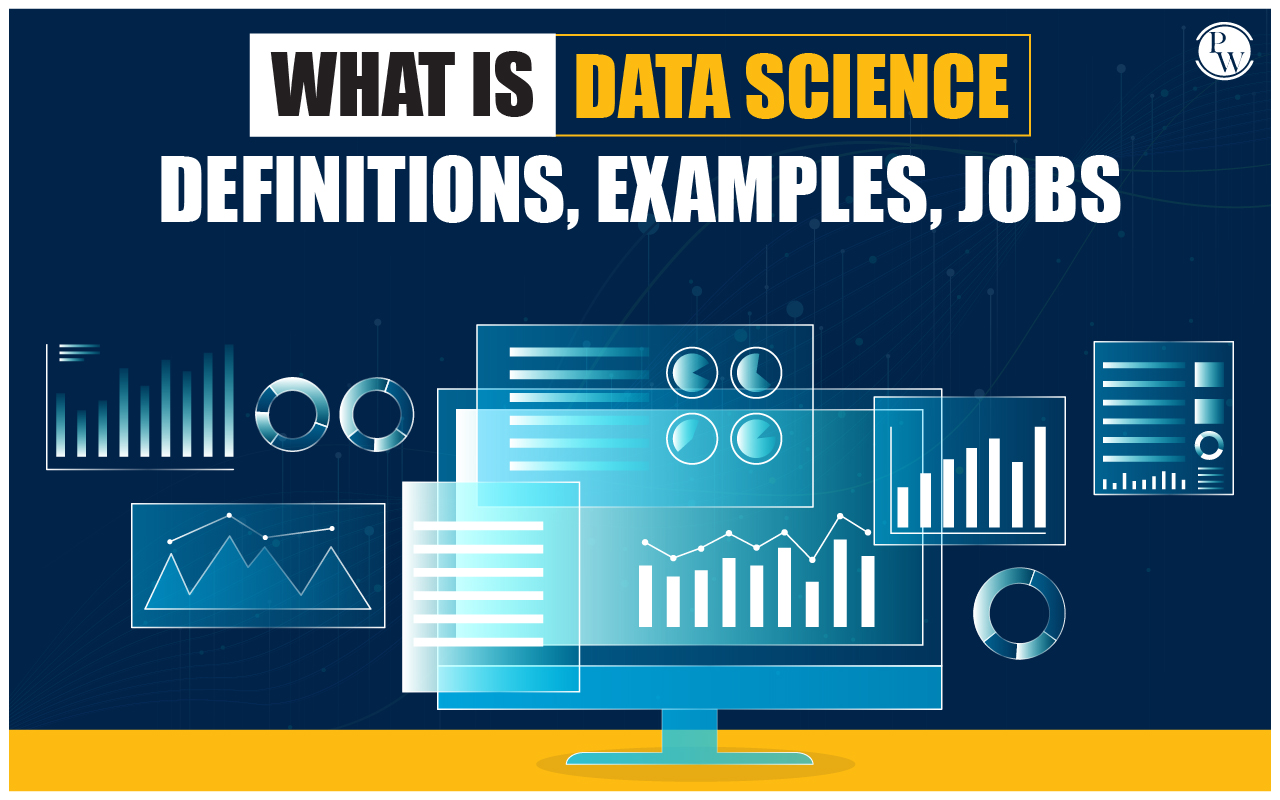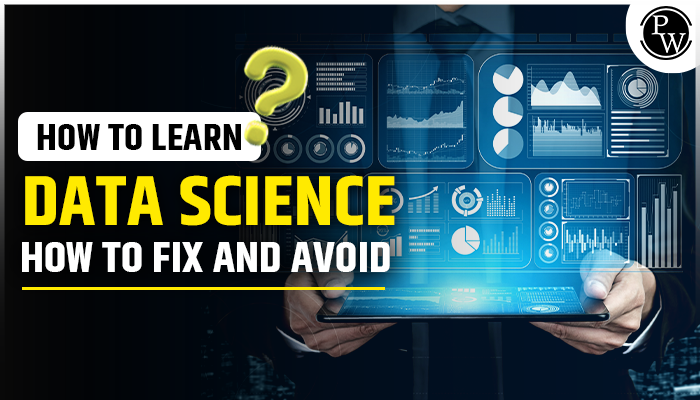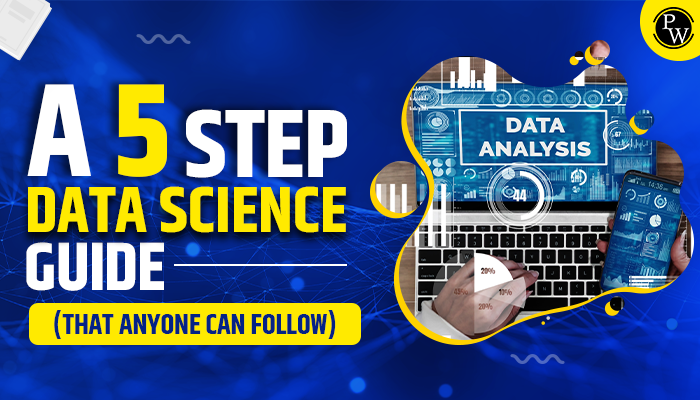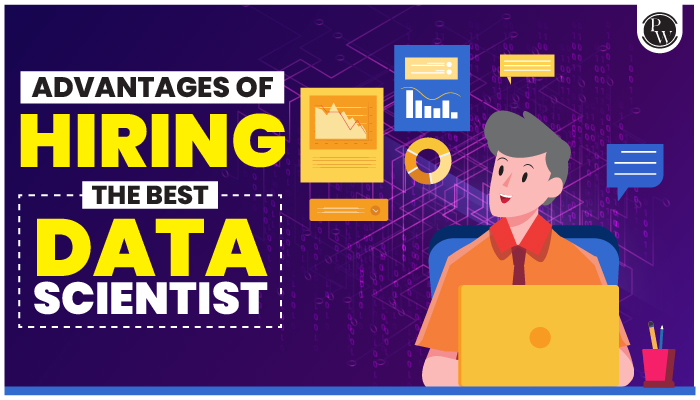Today’s digital age has brought enormous value to data, which is increasingly vital for the individual aspects of our lives. Data Science provides us with information and insight we could never get before, from business operations to health care. This has led to an ever-growing demand for data scientists, and they are becoming part of many sectors.
The Data Science course organization needs expert data scientists to gather relevant information and discover valuable insight in view of the enormous amounts of data collected daily. This information may help companies to enhance their products, optimize processes, and achieve a competitive edge in the market.
Data analysts are experts in the analysis and interpretation of complex data sets. They are proficient in collecting, organizing, cleaning, and processing data and using statistical techniques and ML algorithms to find patterns that cannot be detected. Their mission is to identify trends, predict future outcomes, and deliver transformational recommendations on the basis of data intelligence.
Data Science definition
Due to the growing importance of data in almost every sector, there is an increasing demand for data scientists. Data scientists are essential to exploit the power of data and make it a driver for innovation in all areas: Financing, Marketing, Health, and transport. Businesses recognize that data are an asset that can improve decisions, make operations more effective, and provide better customer experiences if they are appropriately analyzed.
As a result, data Science plays an important role in today’s world, and data scientists must be able to tap into their potential. They help organizations take full advantage of massive amounts of data, discover helpful information, and make positive changes. The need for data scientists will increase in the coming years, and this profession will become increasingly desirable globally due to the growing volumes and complexity of information.
Recommended Course
- Decode DSA with C++
- Full Stack Data Science Pro Course
- Java For Cloud Course
- Full Stack Web Development Course
- Data Analytics Course
Data Science Application
Making informed decisions:
Data science provides insight into data analysis, giving us the power to make better choices. Data science assists in understanding patterns, trends, and correlations, which enable informed decisions, whether a commercial decision on product strategies or government agency planning policies.
Enhancing efficiency and productivity:
Data science is an efficient way to optimize processes and increase their effectiveness. Data scientists are able to identify bottlenecks, reduce expenses, and eliminate inefficiencies through analysis of big data sets. For businesses and organizations, this means increased productivity and cost savings.
Enhancing customer experience:
Data science enables companies to understand their customers better. Companies can tailor their services, improve the level of customer service, and develop sophisticated marketing campaigns based on consumer data, preferences, and behavior analysis. This would lead to enhanced customer experiences and higher satisfaction with customers.
Predictive Analytics:
Data science allows us to predict future outcomes based on historical data and statistical models. This is relevant in many areas, such as healthcare, finance, and weather forecasting. Predictive Analytics are used to identify possible risks, make estimates, and take preventative action in the event of undesirable events.
Data Science Job opportunities
There are numerous job opportunities available in the field of data science. In simple terms, these are some of the more commonly understood positions:
Data Analyst:
Data analysts collect and analyze data to find out what’s happening and what’s going on. Data interpretation and meaningful presentation make making informed decisions easier for business firms.
Machine learning engineer:
Algorithms enabling machines to learn, predict and make decisions on the basis of data are being developed and implemented by machine learning engineers. They’re working to create systems capable of automatic improvement and adaptation based on experience.
Data Engineer:
The infrastructure necessary for storing, processing, and analyzing large datasets needs to be built and maintained by data engineers. They help to ensure that data flows are efficient, secure, and Scalable for the purpose of supporting Data-Driven Operations.
Data Scientist:
With a view to analyzing complex datasets, data scientists use their knowledge in statistical analysis, computer learning, and programming to extract useful information. In the area of solving business problems and predicting future results, they are developing models and algorithms.
Database Administrator:
Database administrators manage and maintain databases that ensure data integrity, security, and efficient access. They are improving the performance of databases, handling backups, and implementing data security measures.
Business Analyst:
In order to identify the needs and requirements of businesses, business analysts work closely with stakeholders. They use data analysis to evaluate performance, identify possible improvements, and propose actions to support business strategies.
Product Analyst
The Product Analyst’s job is to analyze user data and feedback with a view to understanding user behavior and improving product performance. In order to make decisions on developing products and improving user experience, they are using data.
Financial Analyst:
Financial analysts use data analysis to evaluate financial performance, examine investment opportunities, and make financial forecasts. In order to provide insight into the decisions made about financing, they analyze market trends and data from the economy.
Data Systems Developer:
Data system developers create and maintain software systems that process, store, and retrieve information. They shall develop and introduce data management solutions that ensure effective and reliable data operations.
These positions include a wide range of responsibilities in data science. Each role has its own unique remit and responsibilities, but each plays an important part in the use of data for valuable business intelligence that results in success.
Data Scientist Salary
Data scientists have higher-than-average salaries and are positive about their job prospects. According to the US Bureau of Labor Statistics, the average annual salary for data scientists is $108,660. In addition, the Bureau of Labor Statistics projects that between 2021 and 2031, there will be a 21% increase in the number of jobs held by data scientists and another category of jobs related to computation and data research, with around 3,300 new positions per year.
Benefits for Data Science In the Future
For companies in different sectors, there are many benefits from data science. Some of the key advantages are given below:
Decision-making through data science:
Data science allows enterprises to make informed decisions considering analysis and intelligence generated from the data. Businesses can determine patterns, trends, and correlations to enable them to gain a better understanding of customer behavior, market dynamics, or operational inefficiencies through their use of data.
Precision Analysis:
Data science techniques, including the use of precision analysis and optimization algorithms, can enhance operational efficiency. Businesses can optimize processes, reduce waste and streamline operations to decrease costs and improve productivity by analyzing past data and patterns.
Improved customer understanding:
The use of data science enables companies to gain a better understanding of their customers. Businesses can develop targeted advertising campaigns, personalized customer experiences, and services tailored to their needs by analyzing consumer data such as demographics, purchasing history, and usage on the Internet.
Competitiveness advantage:
Data science’s uncovering of knowledge that competitors may overlook can give rise to considerable competitive advantages. Businesses can find out trends in the market and predict customers’ preferences, creating new products and services that meet changing market needs through data use.
Risk assessment and risk management:
Data science techniques can help businesses more efficiently assess and manage risks. Businesses can get a sense of the possible risks, discover fraud activities and develop risk mitigation strategies to minimize business losses and protect their reputations through historical data analysis and predictive models.
Growth of revenues:
By establishing new revenue streams and adjusting pricing models, data science can contribute to the growth of revenues. Businesses can identify opportunities to cross-sell and expand sales, optimize pricing models, and target new markets by analyzing customer data and market trends.
Data Science skills required
In order to be successful in data science, professionals must possess a combination of skills and an understanding of the appropriate tools. In the data science area, here are some of the essential skills and tools used:
Technical Skills:
Linear Algebra:
A number of data science techniques, such as matrix operations, igenvalues, and eigenvectors, are based on linear algebra. This shall lay down the foundations of understanding and working with high-dimensional data.
Machine Learning Techniques:
Data science professionals should understand different machine learning algorithms, such as regression, classification, segmentation, and metacognition. In particular, they must understand how to choose and use appropriate algorithms to solve the problem.
Multivariate calculus:
is a tool that helps data science professionals understand and optimize the complexities of mathematics functions and models. It’s crucial to the development of machine learning algorithms and optimization techniques.
Statistics:
To analyze and interpret data accurately, Data Scientists must have a strong knowledge of statistics. Knowledge in probability theory, hypothesis testing, estimation intervals, and statistics are also part of this.
Evaluating algorithms:
The data scientist must be able to classify and select suitable algorithms for a given task. In order to effectively deal with real-world problems, we must understand algorithmic principles, know their strengths and limitations, and apply them efficiently.
Creating and Maintaining Algorithms:
Data scientists should be capable of designing and optimizing algorithms with special use cases in mind. This includes the application of algorithms, optimizing them for efficiency, and continuously improving their performance.
Information retrieval:
Knowledge of accessing, manipulating, and processing information from different sources and databases is essential for data scientists. This includes the ability to query relational databases using SQL Server Structured Query Language.
Tools:
SAS:
SAS (Statistical Analysis System) is a widely used software suite for advanced analytics, data management, and predictive modeling. The instrument offers a range of tools for data manipulation, statistical analysis, and machine learning.
Excel:
It’s an easy-to-use tool for data manipulation, visualization, and basic statistical analysis. It is used to analyze data and create easy models on a regular basis.
Tableau
Tableau is a great tool for creating interactive dashboards, reports, and visualizations that data scientists can use. It’ll help to communicate these findings to stakeholders effectively.
Apache Spark:
The Apache Spark distributed computing framework processes and analyzed large amounts of data. It allows data scientists to efficiently perform more sophisticated analytics tasks on enormous datasets.
Challenges Faced by Data Scientists
In their job, data scientists face a number of challenges. The following are some of the common challenges you’ve been facing:
Multiple sources:
Data scientists frequently deal with data from various sources, e.g., structured and unorganized information, in various formats. Integrating and cleaning data from different sources may take a lot of time and complexity, but it will require transforming or normalizing these data.
Understanding business problems:
In order to gain a thorough understanding of the challenges or objectives, data scientists will have to work closely with stakeholders and commercial managers. In such a situation, it may be difficult to communicate effectively with and align technical and business teams due to the importance of domain knowledge.
Scalability and Performance:
Analyzing and processing large-scale datasets pose challenges related to scalability and performance. Data scientists must use shared computing frameworks, concurrent processing, and optimization techniques to handle large quantities efficiently. It may be difficult to ensure that models and algorithms do not perform poorly as the volume of data increases.
Model Interpretability:
As machine learning models become more complex, interpretability becomes challenging. Data scientists must explain and interpret the model’s decisions and predictions, especially in regulated industries where humans must intervene. Balancing accuracy and interpretability can be a trade-off.
Feature Selection and Engineering:
Selecting relevant and engineering new features is crucial for building effective predictive models. The data scientists need to find out what is helpful from the available data to develop new features to find important patterns and relationships. Domain knowledge and imagination are needed for the purpose of feature engineering.
Data Science Certification Courses
Students can accelerate their careers in Data Science with well-structured courses available on the Physics Wallah learning platform. Students will get a chance to learn the skill set required to become a data scientist. With certification, data science online learning courses will help students get in-depth knowledge of the working domain.
PW Skills Provide Various Platform
Frequently Asked Questions
Q1. How can I become a data scientist?
Ans. The path to becoming a data scientist usually consists of three steps:
- You must obtain a bachelor’s degree in information technology, computer science, mathematics, physics, and other relevant fields.
- Successfully complete a master’s degree in the area of data sciences or associated fields.
- Develop a background in an area of interest.
Q2. What is data science used for?
Ans. Data science combines math and statistics, specialized programming, advanced analytics, artificial intelligence (AI), and machine learning with specific subject matter expertise to uncover actionable insights hidden in an organization’s data. This information may be helpful in guiding the decision-making and planning process.
Q3. What skills do data scientists need?
Ans. Students need to learn the following to ace their journey of becoming data scientists:
- Programming
- Statistics and probability
- Data wrangling and database management
- Machine learning and deep learning
- Data visualization
- Cloud computing
- Interpersonal skills
Recommended Reads
Data Science Interview Questions and Answers
Data Science Internship Programs






